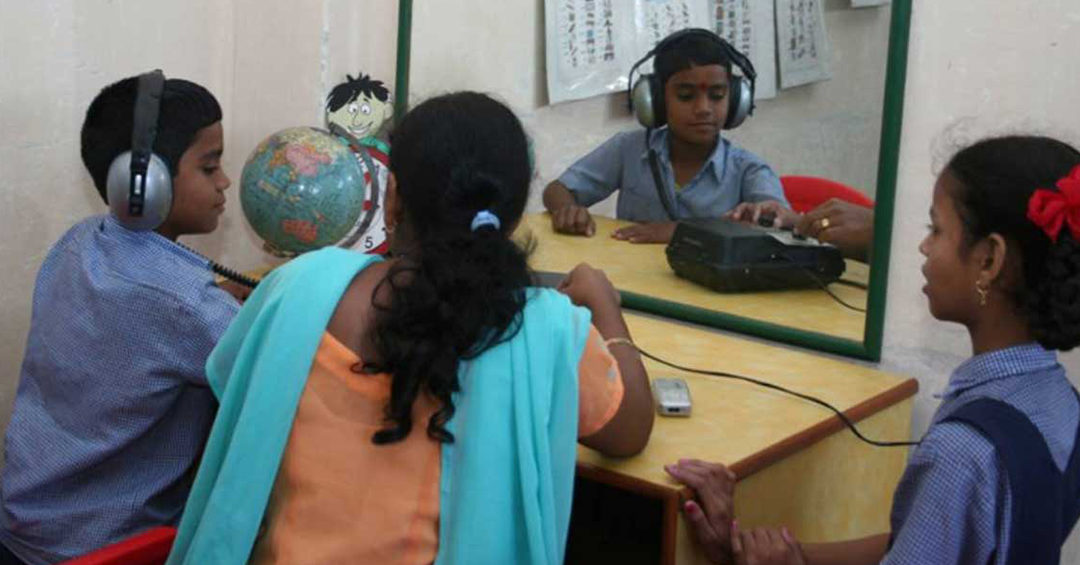Speech Therapist at Mental Health Foundation Kolkata, Santanu Mukherjee, works with communication and Speech Disorders in children. He gives an idea to parents on how to understand Hearing and Speech problems in children at an early age.

SANTANU MUKHERJEE
Before a human child learns to speak,they learn to hear and listen to what others say. So, from a Speech therapist’s perspective, hearing is very crucial. Now, what is the difference between hearing and listening? Hearing is simply the act of perceiving sound by the ear, while listening requires concentration, so that our brain processes ‘meaning’ from words and sentences.
The human hearing mechanism is uniquely designed and finely tuned to facilitate the acquisition of language. We learn to talk, because we have the capacity to hear and listen to the right things. When a child’s hearing is impaired, the extent of the Language Disability will depend upon how severe the loss is, when the loss occurred, how early it was detected, and at what point treatment started. Early detection of Hearing Loss is very important.
As per Joint Committee on Infant Hearing (JCIH, 2007): “Hearing of all infants should be screened at no later than 1 month of age. Those who do not pass screening should have a comprehensive Audiological evaluation at no later than 3 months of age.” Hearing loss, also known as Hearing Impairment, is a partial or total inability to hear. It may occur in one or both ears. By Hearing Loss, we mean that some usable hearing still exists. The individual can hear certain sounds at a certain loudness level. He may hear some of what you say. There are two major kinds of Hearing losses: Conductive and sensory-neural.
In Conductive, loss is caused by some defect in the outer or middle ear when there is a problem with conduction of the sound. Children with Conductive loss, usually learn to speak, though some problems may occur. They may show articulation errors like substitution [like “TOLA” instead of “KOLA” in Bengali] and omission [like “BO” instead of “BALL”]. More seriously for a child’s academic future, even temporary episodes of Conductive Hearing loss may produce secondary effects such as reduction in language skills, auditory perceptual problems, which may persist after the middle-ear pathology is medically corrected.
The other type of Hearing loss is Sensory-neural. That is when the nerve is responsible for the Hearing loss. This is mostly an irreversible condition. Children with this kind of problem have to use some kind of management strategies which is mostly suitable for child’s condition. Of the two types of Hearing loss, this is usually more serious for Speech learning.
But even more important is the difficulty that children with auditory disorders experience in figuring out the structure of Language itself. Children with normal hearing is provided with a wealth of speech samples, from which they can find the combination rules that are acceptable; the deaf child is impoverished. However, they can communicate as well when they are taught very carefully in a highly favorable environment.
(Source: Speech Correction)






















